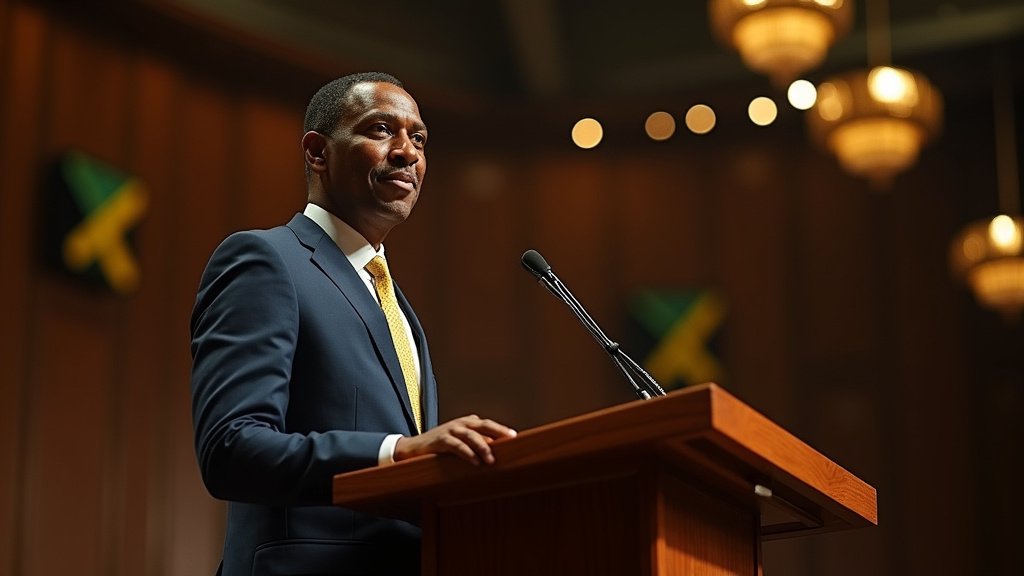Prime Minister Andrew Holness has secured a third consecutive term as Jamaica’s leader, with his Jamaica Labour Party (JLP) clinching a majority in the 2025 General Election. Preliminary results indicate the JLP won 34 out of the 63 seats in the House of Representatives, narrowly defeating the opposition People’s National Party (PNP), which secured 29 seats. The election saw a voter turnout of approximately 38.8%, a figure noted by analysts as being critically low, reflecting ongoing concerns about voter apathy despite the significant stakes.
In his victory speech, Holness struck a defiant tone, declaring, “No weapon formed against me shall prosper.” This statement came against the backdrop of a challenging campaign marked by allegations of corruption and scrutiny over his personal finances and asset declarations. Holness had previously defended himself, stating that a forensic audit had found no evidence of corruption and that his personal financial details were public. He also referenced lyrics from reggae artist Sizzla in his address, indicating resilience against political attacks.
Election Outcome and Mandate
The JLP’s victory marks a historic achievement, as it is the first time the party has secured three consecutive terms in government. This success builds on the party’s previous performance, during which Jamaica has seen significant economic improvements and a marked reduction in crime. The World Bank has acknowledged “significant strides” in reducing public debt, which fell from over 140% of GDP in 2013 to 73.4% in the 2023-2024 financial year. Furthermore, crime rates have seen a substantial decrease, with killings down by 43% year-to-date, attributed to increased firearm seizures and enhanced security force coordination.
Despite these achievements, Holness acknowledged that more work is needed to ensure that the economic gains are felt by all Jamaicans, particularly in improving prosperity at the community level. He stressed the need for the government to remain focused on delivering basic services and ensuring that prosperity reaches every household.
Campaign Themes and Opposition’s Push
The campaign largely revolved around critical issues of corruption, socioeconomic inequity, and economic stability. The PNP, led by Mark Golding, had sought to capitalize on public discontent, promising reforms and increased social investments. Golding conceded defeat, acknowledging the JLP’s victory while expressing disappointment. The PNP had focused on issues like poverty, high living costs, and infrastructure deficits, proposing to raise the income tax threshold to provide relief to working-class Jamaicans. They also criticized the government’s handling of public services and highlighted concerns surrounding the integrity commission’s findings regarding Holness’s declarations.
Low Voter Turnout and Future Challenges
The low voter turnout of 38.8% has been a point of concern, with analysts suggesting it reflects voter apathy and a potential disconnect between the electorate and the political process. While the JLP celebrated its historic win, Holness cautioned against complacency, urging the party to remain attentive to the needs of the people and address the challenges that lie ahead. The election results underscore the ongoing need to tackle issues of corruption and ensure that economic growth translates into tangible benefits for all citizens.
As Prime Minister Holness embarks on his third term, he faces the persistent challenges of addressing public concerns about corruption, ensuring equitable economic distribution, and improving critical infrastructure. The election news highlights a Jamaica that has seen progress but still grapples with fundamental socioeconomic issues, setting the stage for the administration’s next phase of governance.

